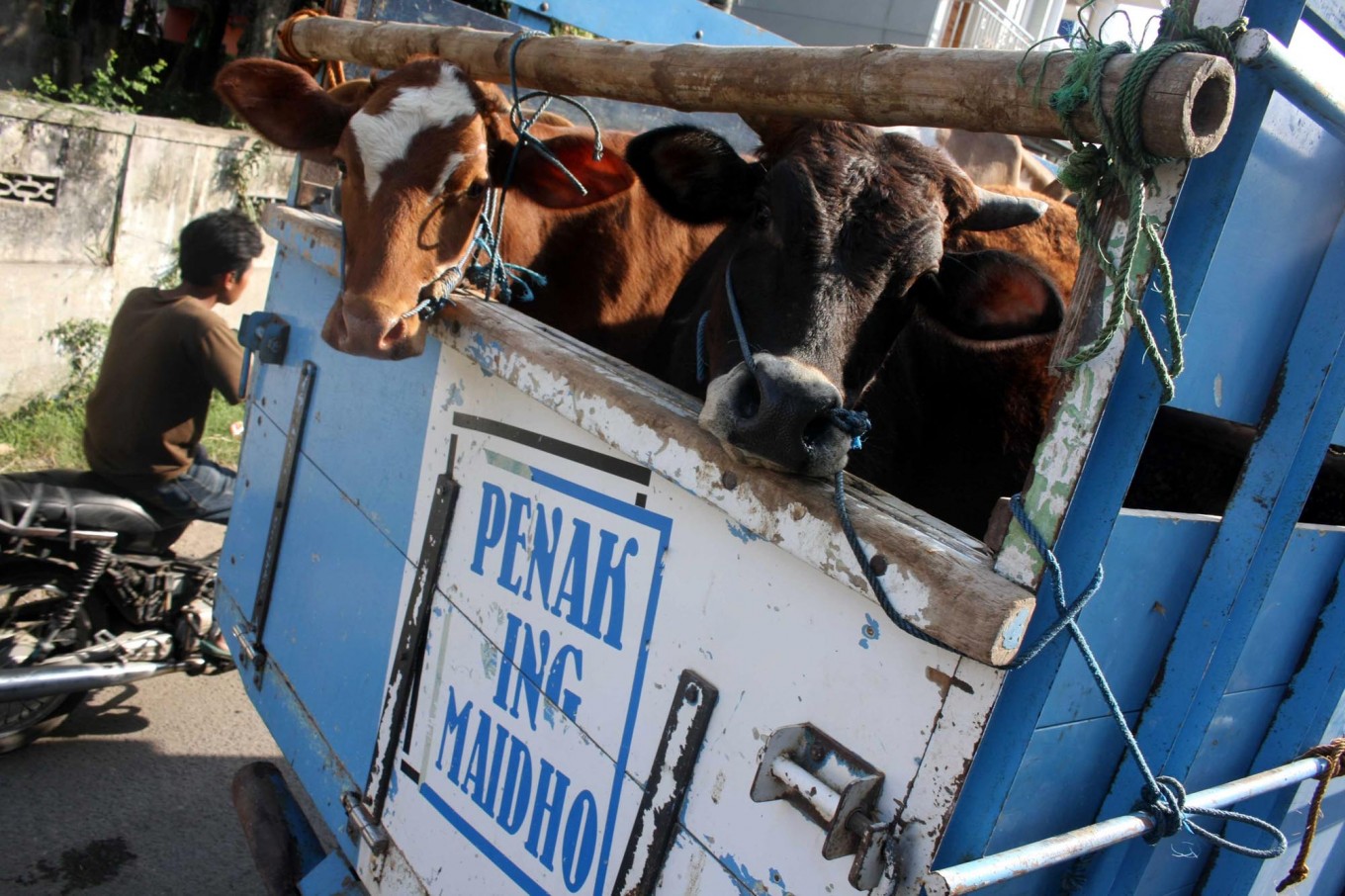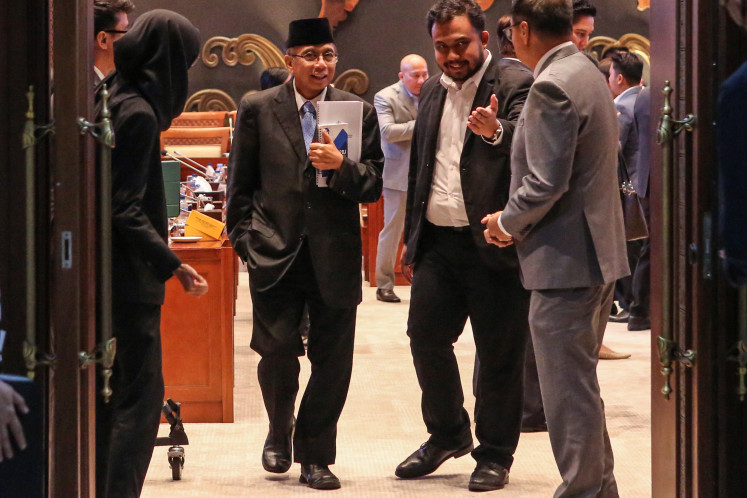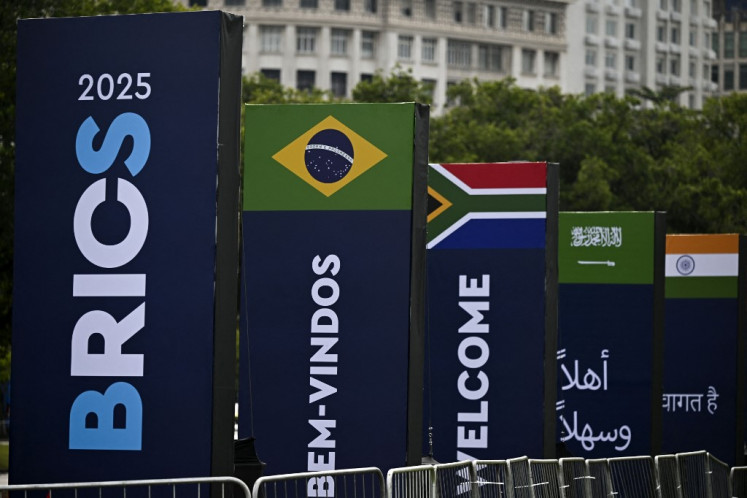Popular Reads
Top Results
Can't find what you're looking for?
View all search resultsPopular Reads
Top Results
Can't find what you're looking for?
View all search resultsIndonesia bans Indian beef amid second wave
The government has stopped importing beef from India due to the COVID-19 crisis there, but without an alternative source country, Indonesia may be looking at a meat crisis by May.
Change text size
Gift Premium Articles
to Anyone
I
ndonesia has suspended imports of buffalo meat from India as the South Asian country, which ranks second in the world in COVID-19 cases, continues to battle a surge in infections.
The State Logistics Agency (Bulog) made the decision on May 18 in response to the ongoing “second wave” of COVID-19 in India. Bulog said the public health situation might disrupt logistics in that country while raising safety concerns over the imported meat at home.
Bulog was tasked by the government with importing meat from India to meet domestic demand to keep prices stable ahead of Idul Fitri, a peak holiday shopping season that typically causes a spike in demand.
Beef imports from India and other countries also helped compensate for the decline in Australia’s meat and livestock supplies after wildfires and floods devastated the industry.
India has been Indonesia’s second-largest supplier of meat in the past four years after Australia, according to Statistics Indonesia (BPS).
Bulog president director Budi Waseso added that the suspension meant the agency would not reach its beef import target, while its reserves had fallen below the ideal volume for maintaining price stability.
“Due to the lockdown and the surge in COVID-19 cases in India, we have temporarily stopped imports,” Budi said at the House of Representatives last Tuesday.
At a meeting in early January, the government approved a beef import quota of 80,000 tons for Bulog this year, but the agency has procured only 13,000 tons from India to date.
According to the Trade Ministry, Bulog would have to import 37,464 tons of beef from March to May to prevent a gaping meat shortage. Assuming that Bulog and other importers meet their targets, Indonesia would still be short at least 8,834 tons of beef at the end of May. Failing to reach the import target would exacerbate the supply deficit and could see beef prices soar.
The Indian government issued a statement through its embassy in Jakarta to contest Bulog’s concerns about the safety of its beef, emphasizing that COVID-19 was transmitted primarily between people and rarely from food or food packaging to humans.
The embassy added that Indian meat processors were following stringent health measures such as physical distancing, hygiene and sanitation.
“Hence, all importing countries can safely import Indian-origin frozen boneless buffalo meat. Thus, buffalo meat exports from India are going on smoothly with no hurdles in the supply chain,” said the embassy statement dated May 21.
This is the second time in a row that the government has been unable to fulfill its meat import target due to supply chain disruptions from the pandemic. India’s 21-day nationwide lockdown in March 2020 resulted in a massive decline in export activities, including buffalo meat shipments to Indonesia.
According to BPS, Indonesia imported a total of 672 tons of meat from India in the first quarter, far below the government’s target to import 170,000 tons of meat from India to stabilize prices before Idul Fitri.
At the same meeting in early January, the government also tasked Berdikari with importing meat from Brazil ahead of Idul Fitri, allotting the state-owned trader an import quota of 20,000 tons.
But like Bulog, the company has also failed to meet its target, importing just 415 tons of meat ahead of Idul Fitri, which fell on May 13 and 14. This is around 23 percent of the Trade Ministry’s minimum import target of 1,786 tons for the first five months of the year.
Berdikari president director Harry Warganegara said at the House on May 19 that the company was having a hard time with the two government-approved Brazilian suppliers, which had limited their capacity to haggle over price and volume.
On the other hand, the company deemed that the import permit issuance was belated, as the Brazilian suppliers required a processing time of at least one month.
Rochadi Tawa, secretary-general of the Indonesian Cattle and Buffalo Breeders Association (PPSKI), pointed to the government’s failure to import enough meat as the cause of the spike in beef prices ahead of Idul Fitri, as the available supply was insufficient to meet the seasonal hike in demand.
According to the National Strategic Food Price Information Center (PIHPS), meat prices hit a high of Rp 153,350 per kilogram at traditional markets in Greater Jakarta leading up to Idul Fitri, compared to Rp 129,150 per kg in early January. Beef prices reached Rp 170,000 at several faclities managed by state-owned market operator PD Pasar Jaya.
Rochadi noted that Indonesia needed to find alternative import sources to meet domestic demand, as the Australian beef industry might still need time to recover. He estimated that Australia would need until the end of 2022 to recover its beef production in the best-case scenario, but could need until 2024 in the worst-case scenario.
He also urged the government to take a more serious approach to imports to avoid repeating the mistakes of 2020, when it decided on meat imports late and ran up against problems in supplier countries, most notably coronavirus surges.
Brazil could be one of the best options for Indonesia, Rochadi continued, as the country’s cattle production of 230 million head far surpassed Australia’s production volume of 30 million head. The only problem was that the government needed to find a way to deal with regulatory and health issues, including foot-and-mouth disease discovered at several Brazilian livestock companies.
“If we do not take this seriously, it is possible that Indonesia will face a meat crisis,” Rochadi told The Jakarta Post on Monday.










